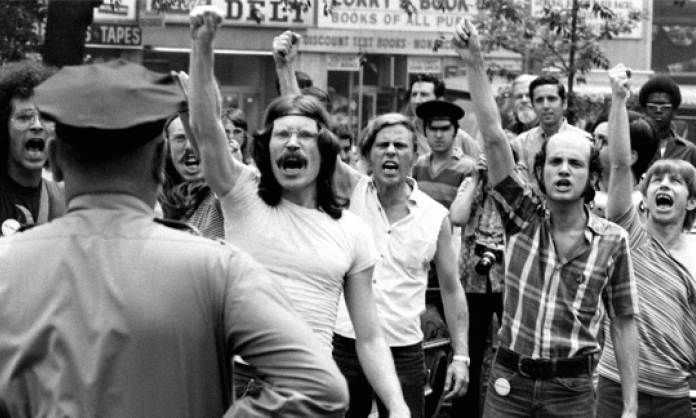We all know about the reactionaries on the wrong side of the marriage equality debate – the kind of people who light a candle for Bob Menzies every Sunday and for whom rock and roll represented the beginning of the end: the protectors of family values, cheerleaders for conformity and upholders of the status quo.
Unfortunately, some of the people who support marriage equality have gone too far in trying to win backing from the most conservative sections of the population.
Led by Australian Marriage Equality national director Rodney Croome, they argue that the right to celebrate family Christmases as though the 1950s never ended, spend thousands on lavish weddings and form stable, hard-working families that can be the backbone of a prosperous and diverse (in the least threatening way possible) nation is what marriage equality is all about.
They disapprove of protests, “disrespectful” comments about Tony Abbott and basically anything that might raise the collective blood pressure of the Melbourne Club membership.
This month Croome reached a new low, arguing that marriage equality is needed to strengthen the fight against ISIS. “There’s no better time to affirm our core liberal, democratic values by providing equality for all, than when we are facing a thuggish and deeply-homophobic ‘death cult’”, wrote Croome in a Melbourne Community Voice opinion piece.
Marriage equality, he contends, will serve as an advertisement for the superior “Enlightenment values” of the West against those of Islamist “theocrats” and bring Australia better up to speed with its allies.
Tying the issue of marriage equality to the Abbott government’s wider conservative agenda only diminishes our struggle and will undermine the value of any eventual victory. Because just as important as changing the law is the basis on which it is changed – especially whether that’s through a defiant public campaign or by pleading with those in power.
The former method builds confidence among the oppressed and marginalised, impacts mass attitudes by being loud and visible, and helps to form alliances that can reinforce future struggles against oppression and injustice. By contrast, Croome’s pleading leaves the status quo as much unchanged as possible.
As Croome demonstrates, this means throwing other oppressed groups under a bus in order to achieve our goal. It’s plain to see that the government’s hype about the threat of ISIS is actually about distracting attention from the budget and drumming up hatred towards Muslims in order that they, rather than those in power, take the blame for society’s ills.
By getting on board with such an agenda, Croome is indicating that LGBTI people are unconcerned about workers being attacked or Muslims being vilified so long as we can have our rights. The message is that these groups should not expect to find allies among marriage equality campaigners, regardless of the fact that we face a common enemy and endure common oppression.
The contrast with the last great high point of LGBTI struggle could not be greater.
The Gay Liberation Movement of the 1960s emerged directly out of a campaign against the Australian government’s imperialist adventures. Emboldened by the victory of the mass movement against the Vietnam War, young people gained the confidence to challenge inequality and injustice at home.
The anti-war movement’s success established that defiant public campaigns that link up with as broad an array of allies as possible was the key to victory. These values informed later struggles. The call for “gay pride” reflected this – the assertion that LGBTI people do not have to hide or be ashamed, and that instead society should change to be more inclusive, was a strength and source of confidence that still animates people 40 years later.
Without this willingness to ruffle the feathers of very powerful people, mass attitudes to homosexuality would not have been so radically transformed, and the lives of untold numbers of LGBTI people improved, in the way they have been.
This is the approach we need today.
The struggle for marriage equality should be about not only ending formal discrimination but also challenging homophobia in all its many subtle forms. It should be about overcoming, not embracing, the stultifying constraints that society continues to place on our social lives and sexuality.
It should be about learning the power and confidence that come from standing with others fighting a common oppressor. Securing marriage rights on the basis that we agree to keep our heads down, promote the interests of the rich and powerful and justify the continued oppression of others is no victory at all.





